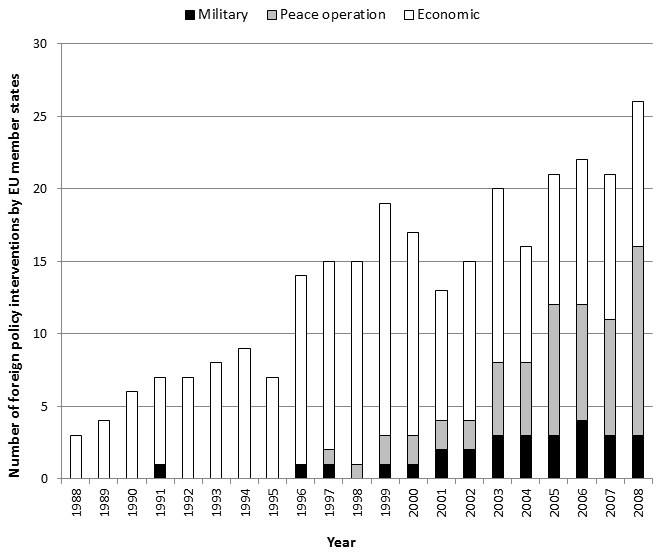Kreutz, J. (2014) “Why the EU’s commitment to preventing human rights abuses abroad is more than just rhetoric“, LSE EUROPP, 10 Νοεμβρίου.
Is EU foreign policy genuinely influenced by humanitarian concerns or are such claims merely used to add legitimacy to traditional power politics? Joakim Kreutz uses data on EU foreign policy actions between 1989 and 2008 to assess the extent to which human rights concerns have played a role in decisions to intervene abroad. He finds a correlation between humanitarian atrocities and EU interventions; however this effect is strongly influenced by the geographic region in which atrocities take place. Overall, the EU appears most sensitive to human rights abuses within non-EU countries in Europe, followed by sub-Saharan Africa and East Asia.
What is the basis for the foreign policy of the European Union? This has been debated by scholars and policymakers ever since the Copenhagen declaration in 1973 suggested a European foreign policy based on norms and values rather than power and realpolitik. While some argue that the EU has been committed ever since to normative goals such as the protection of human rights, critics claim that the humanitarian rhetoric is used to justify traditional geopolitics.
In a recent article, I provide the first systematic investigation of whether EU foreign policy activity is aimed against humanitarian atrocities using global information on EU sanctions, peacekeeping, and military actions between 1989 and 2008. My findings show that EU action is consistently more likely in countries where violence explicitly targets civilians. This effect is visible already at relatively low levels of violence, with an increased probability of EU action statistically significant when around 30 fatalities are reported in a year. Thus, the EU is not only responding to excessively violent situations like in the former Yugoslavia or Rwanda, but is sensitive to low-level humanitarian atrocities.
Chart 1: Number and type of foreign policy interventions by EU member states (1989 – 2008)
Σχετικές αναρτήσεις:
- Seumas Milne, “Europe’s sea of death for migrants is a result of war and escalating inequality“, The Guardian, Thursday 9 October 2014.
- “Greece, racism and the church – Your genocide or mine?“, The Economist Blog, 29 Αυγούστου 2014.
- FRA (2014) “Fundamental rights: key legal and policy developments in 2013. Highlights 2013“, European Union Agency for Fundamental Rights, Ιούλιος.




